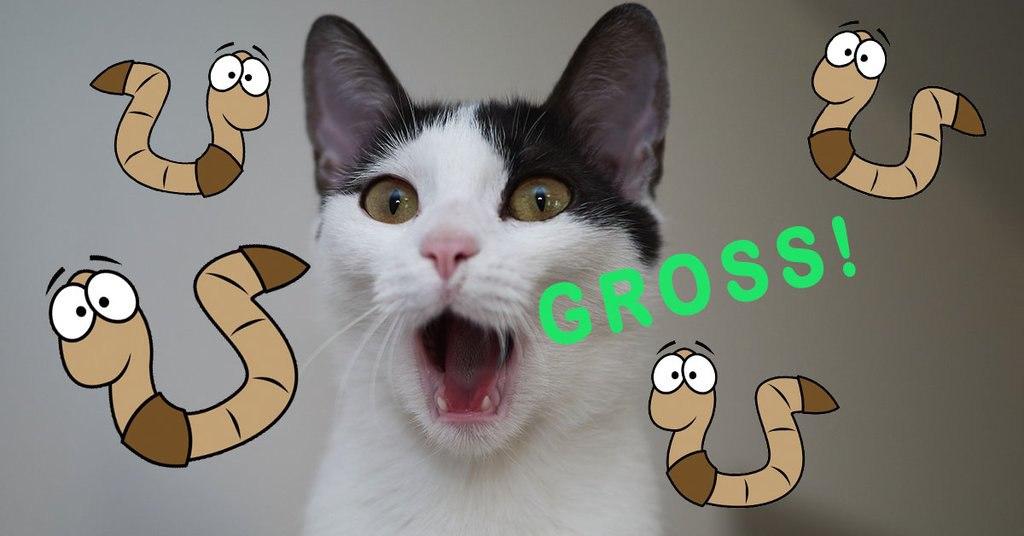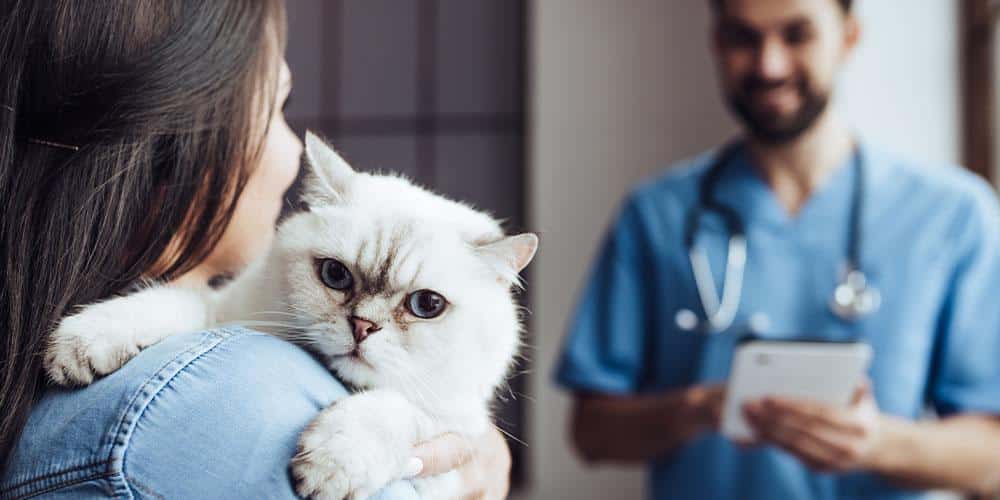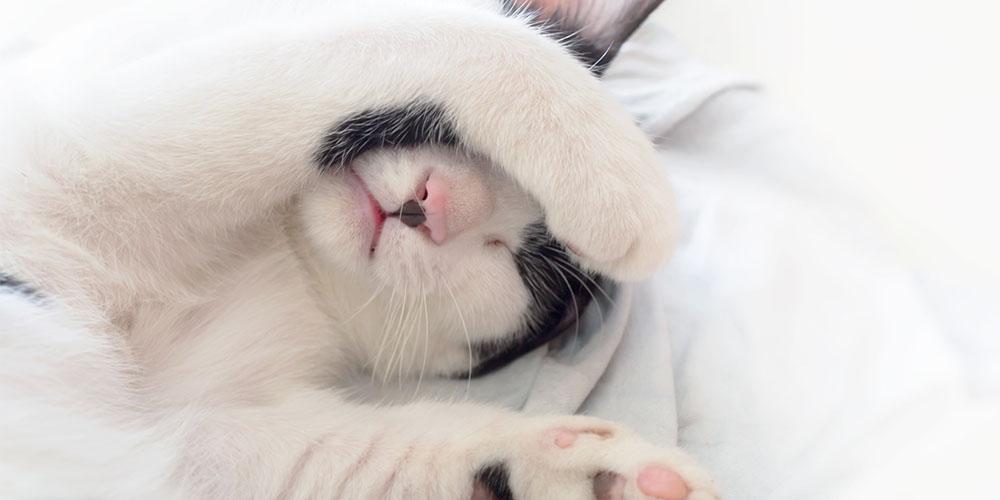Could Your Cat Have Worms?
Are you concerned that your cat may have worms? Worms are very common in cats. The Cornell University College of Veterinary Medicine has discovered that 45% of cats have an intestinal parasite of some sort at any given moment. If that statistic isn’t disturbing enough, it’s quite possible that If your cat does have worms, you are at risk too.
As many as 75% of all worms found in cats are roundworms. A cat can get roundworms when they eat feces that has eggs from roundworms. Catching and eating a mouse or another rodent that has roundworms is another way that cats can get roundworms. If a mother cat is infected with roundworms, she may pass it onto her kittens through her milk, and to you when you clean the litter.
If Your Cat Has Worms, You Could Have Them Too
Yes, it is possible for your cat to give you worms. To get roundworms from your cat, you will need to ingest some of the infected roundworm eggs. This can happen if you come in contact with their feces and don’t properly wash your hands right away, cleaning the litter box is a prime example of how this can happen. For this reason, it is always important to wear gloves and thoroughly wash your hands anytime you may come in contact with a cat’s feces who may be infected with roundworms.
If You Do Get Worms From Your Cat, it Can Be Very Serious
If you do get roundworms from your cat, it can be very serious. Roundworms can take over your intestines. They can live there for as long as two years and may even grow to be as long as 13 inches.
In addition to taking over your intestines, roundworms can make their way into your bloodstream. This can cause issues with your organs or even your eyes. Children are the most likely to become infected with worms since they put their hands in their mouths more frequently than adults do. If you think you or your child has come in contact with contaminated feces, schedule an appointment with the doctor right away.
Signs Your Cat has Worms
Now that you know how serious worms can be for both your cats and the members of your household, it is best to be aware of some signs your cat has worms. There are a few different things you can look for:
1. Weight Loss
Weight loss can be a sign that your cat may have worms. Sometimes cats who have worms may also have a distended, or bloated, stomach. If your cat’s diet hasn’t changed significantly, and you do notice the weight loss, this is a sign to contact your vet.
2. Duller-Looking Fur
Worms can change the appearance of your cat’s fur as well. They can make it less shiny than normal. They may also change the texture, so that it feels more coarse than normal. If you are petting your cat and notice this change, contact your vet to be sure.
3. Lethargy
If you’ve noticed a change in your cat’s energy level, this may also be a sign that they have worms. Cats with worms are often less-energetic and less interested in things they used to enjoy than they were before they had worms.
If you have noticed any of these symptoms in your cat, be sure to schedule an appointment with your veterinarian right away.
Worm Prevention
The most important part of prevention is to be proactive. Getting a fecal exam and physical exam and being responsible with the litter box. Clean and change it frequently. Pet MD also suggests protecting your cat by adhering strictly to a year-round regimen of flea prevention, whether through oral doses, topical applications or collars. This will help prevent and get rid of fleas, which can cause worms to begin with. Finally, keep your cat indoors where it cannot hunt and eat infected rodents.
Have you ever encountered worms or know someone who has? Comment below other ways to prevent worms and keep your household safe!
















